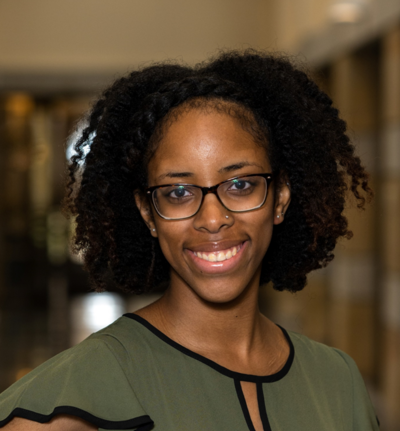Featured below Kellogg International Scholar Khya Morton '24 (political science/peace studies) talks about how she took advantage of the Kellogg Institute’s International Scholar's Program to dive into topics that capture her passions and interests.
 Khya Morton '24
Khya Morton '24
Majors: Political science, peace studies
Minor: Italian
What I do:
I am an undergraduate research assistant for Professor Ernesto Verdeja through the Kellogg International Scholars Program. This is a competitive research program offered by the Kellogg Institute that pairs selected students with a Kellogg faculty fellow to develop and strengthen their research skills throughout their undergraduate career (sophomore to senior year).
Professor Verdeja specializes in critical theory, genocide and mass atrocities, early warning technologies, and political reconciliation. My work with him has been centered around the causes and consequences of genocide and mass atrocities as well as prevention efforts.
Currently, I am compiling a list of non-fiction books published in 2023 in preparation for the Institute for the Study of Genocide’s biennial Lemkin Book Award for the best book on genocide and mass atrocity. However, I typically complete a variety of qualitative research projects throughout the school year depending on Professor Verdeja’s upcoming policy reports, presentations, peer-reviewed articles, etc.
For instance, last semester we started a project on the United Nations Office on Genocide Prevention and the Responsibility to Protect. I was tasked with searching through the UN System to see which offices and agencies reference the 2014 Framework of Analysis for Atrocity Crimes in their publications or implement it in their operations. My research was just one aspect of a broader analysis of the functionality and influence of this UN Office on the international atrocity prevention community.
How I got started:
I took Introduction to Peace Studies with Professor Verdeja during the spring semester of my first year. His course instantly became one of my favorites because we explored so many topics that piqued my interest—the responsibility to protect, restorative versus retributive justice, and civil and human rights violations.
So, I started attending Professor Verdeja’s office hours to learn more about his academic background and research expertise because I was interested in pursuing undergraduate research in a similar field. Ultimately, he told me about the Kellogg International Scholars Program and encouraged me to apply…the rest is history!
What I’ve learned:
One of the most useful skills that I have learned from my research with Professor Verdeja is how to critically analyze and summarize scholarly sources and intergovernmental reports while detailing their significance to our research project(s).
Academic publications can be very taxing to break down and comprehend. So, I am thankful that I have had the opportunity to strengthen such an important skill, especially before entering my graduate education and career in law—which will demand strong reading comprehension, critical thinking, and analytical skills.
Regarding the content of our research, I have learned about different triggers of large-scale atrocities and violence throughout history (e.g., political, economic, and social ideologies; individual perpetrator motivations; social media disinformation). The perpetration of genocide and mass atrocities remains an unfortunate reality in our world, so I think this research is very important for the ongoing discourse on early warning frameworks and genocide prevention efforts.
Adapted from a story posted at admissions.nd.edu.





